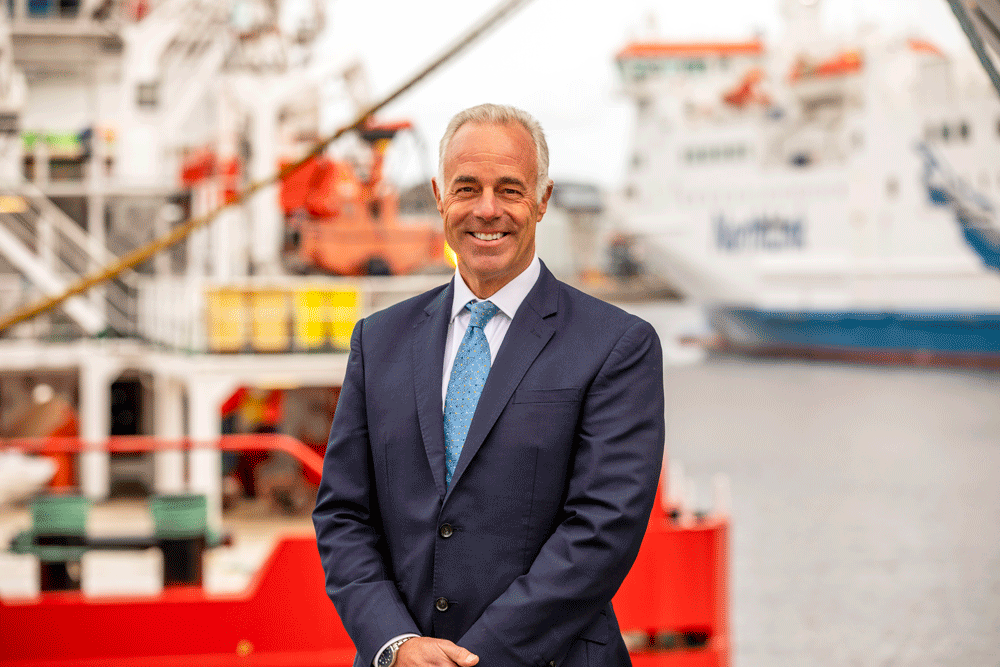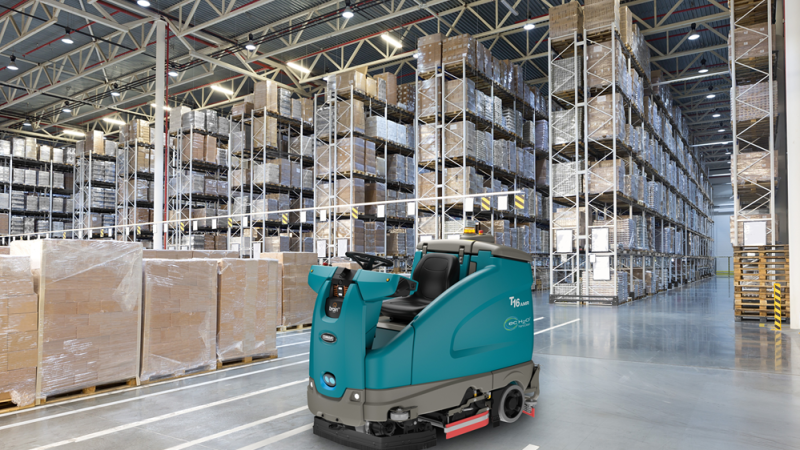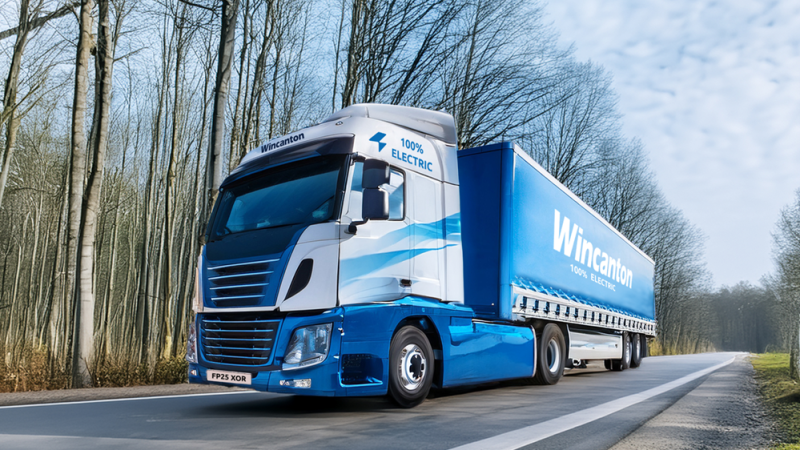Port of Aberdeen, Scotland’s largest berthage port, has always played a major role in the country’s development. The port handles a substantial volume of Scotland’s seaborne freight traffic and is an important supporter of the country’s energy sector as well as tourism. As a multimodal port, it offers a strategic location, world-class facilities and an expert supply chain.
Chief Executive Officer Bob Sanguinetti points out that the impressive legacy is set to continue. “We are the oldest existing business in the UK and with the recent transformational investment in the port’s expansion we are making sure that we stay relevant and continue to grow for the next 100 years.”
With its 119 direct employees, Port of Aberdeen is a relatively small company but it facilitates and supports a huge amount of business. “The importance of Port of Aberdeen for the local as well as regional economy is undeniable,” says Sanguinetti. “We contribute £1.5 billion gross value added (GVA) to the economy, and we support 12,000 jobs in the supply chain.”
“The port is a key logistics hub for the offshore sector in the North Sea, and this will remain as we transition from fossil fuels to renewables, and as the oil and gas platforms are replaced over time by floating and fixed offshore wind farms.”
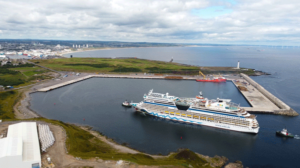 Transformed for the future
Transformed for the future
Sanguinetti explains that as a Trust Port, the long-term vision can be supported by major investment without expecting immediate return. To this end, South Harbour – the largest marine infrastructure project in Trust Port history – was officially opened in September 2023.
The new harbour offers 1,500 metres of deep-water berths, extensive heavy-lift capabilities, 125,000 sq. m. of flexible laydown space, and ample project areas for vessels up to 300 m in length. As such, it offers unparalleled capacity to support projects of all sizes and requirements.
“Opening South Harbour has made us the largest port by berthage in Scotland with 7000 vessels calling in every year. This accounts for about 43% of Scotland’s overall marine traffic,” says Sanguinetti, adding that with these enhanced capabilities and capacity, the port can now attract much larger vessels – such as the 290 m-long cruise ship, Costa Favolosa, that was welcomed to the Port of Aberdeen in June, the longest vessel ever to visit the port.
“South Harbour has been the single most important achievement in the last 10 years,” says Sanguinetti.
“We are now very well placed to continue consolidating and growing our business across the energy, trade and tourism sectors, our three core business streams.”
UK’s first net zero port
The port is also making impressive progress on the sustainability front. “We were delighted to launch our net zero strategy last year, aiming to become the UK’s first net zero port by 2040,” says Sanguinetti.
“Our net zero strategy has three work streams – reducing emissions, facilitating future fuels, and supporting the energy transition. These guide all projects, investment, and decision-making. Over the next decade, we will invest £55 million to become a leading exemplar in environmental stewardship and sustainability, pioneering green port innovation and facilitating energy transition solutions.”
He points out that this cannot be achieved in isolation, and the port will be working very closely with government and with the private sector. Tangible progress is already visible – the ‘Shore Power in Operation’ demonstrator project, started in August 2024 as part of a £4 million project designed to supply clean electricity to vessels at seven berths. As one of the first of its kind in the UK, the project is scheduled to deliver its first power in March 2025.
Sanguinetti points out that the port is in a privileged position to provide key support to the shipping sector to help it transition from fossil fuels to renewables. “We are talking to all stakeholders including the government to see what we can do to provide the infrastructure for new green fuels as they come along.”
Environmental initiatives are considered a priority also internally, he further affirms. The port has an extensive replacement programme in place to replace all vehicles and equipment with electric versions and is continuing the roll-out of LED replacements for lighting. “Our pilot vessels and work boats are now all running on HVO which has allowed us to reduce our CO2 emissions significantly.”
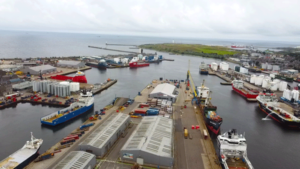 Continuing the legacy
Continuing the legacy
Sustainability is not the only priority on the agenda – digitisation is also at the focus of attention. Port of Aberdeen is set to become the smartest port in the UK with a significant £1 million investment in new technology to improve the safety, connectivity, and sustainability of the port. The view is to upgrade and expand the port’s CCTV and security systems and the deployment of a private 5G, public Wi-Fi and IoT networks to support a range of solutions to improve operations and the customer experience.
The port’s efforts towards a greener future and business enhancement have been duly recognised – in 2023, Port of Aberdeen was voted Business of the Year in the north-east of Scotland, and earlier this year, it won Business of the Year at the Maritime UK Awards, in recognition of its outstanding performance.
The recent investments will, no doubt, further increase the Port of Aberdeen’s importance for the country. “We have been around for almost 900 years due to our ability to adapt, identify trends and change accordingly. We are now doing the same as we go through the energy transition,” says Sanguinetti.
Excellent business performance and a commitment to advancing the maritime sector in the United Kingdom will remain key tasks for the future. Sanguinetti affirms that for the next 12 to 18 months, the focus will be on consolidating the existing business and continuing on the growth path with existing and new customers.
“We will strive to make tangible progress on our net zero strategy, and to work with our partners to see how we can further reduce emissions, while pursuing our diversification strategy to the benefit of the port and the development of the region.”
